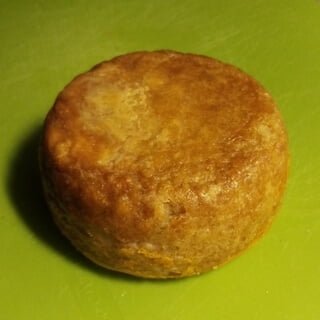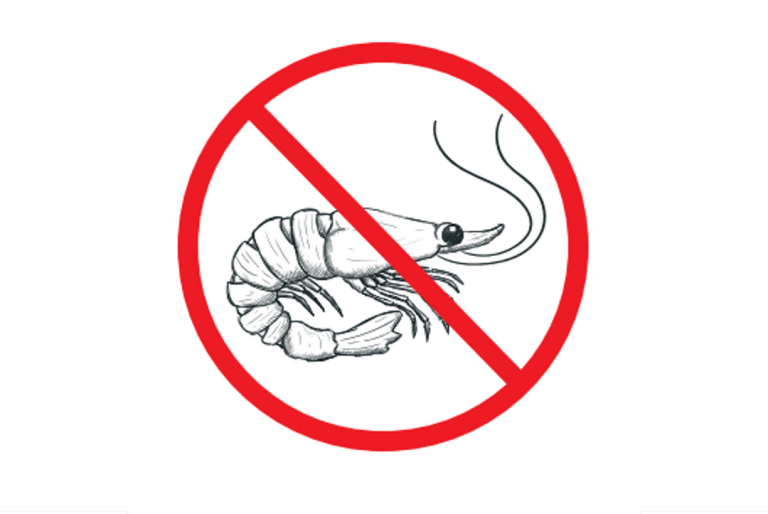
Are edible insects safe to eat?


The EU monitors the food safety of edible insects
First of all, edible insects are now legally food within the EU, but neither the EU nor anyone else will not force citizens to eat insects (or anything else). The consumption of insects is possible, never mandatory, as long as they are authorized as novel foods by the Commission. Similarly, purchasing products containing insect-based ingredients remains a consumer’s choice.
The EU monitors the food safety of edible insects. You can safely eat edible insects, like crickets and mealworms, as long as they are bred for food in the EU, and you follow the same care in cooking them as you do when cooking chicken, pork, fish, or shellfish.
National food safety authorities control the breeding of edible insects in the EU following the EU regulations. So, eating insects bred in the EU is as safe as consuming any other food produced in the EU.
If someone wants to sell edible insects as food within the EU, they must comply with the following rules:
(1) The insects must belong to the list of insect species the EU has accepted as food.
(2) Only insects bred for human consumption are allowed.
(3) The local food safety authority must control the breeding according to strict national and EU food safety regulations.
(4) According to food hygiene regulations, insects sold as food must also be heated at some stage of production because raw insects, like raw meat products, chicken, fish, and seafood (shellfish, mollusks, and crustaceans) can contain microbes and parasites that are harmful to humans. If you want to sell unheated, frozen insects, the packaging must include heating instructions, for example, “heat the insects all over to at least 75 °C before consuming them“.
So, one cannot sell as food insects picked from forests, fields, or behind a hen house. Therefore, ants, which are popular insect food elsewhere, cannot be legally sold as food within the EU.
Also, importers of food insects from outside the EU must follow the same regulations as the European insect breeders. (1) The insect species must be approved by the EU, (2) be bred for human consumption following EU legislation, and (3) the local food safety authority must control the breeding.
In Finland, where Party Bugs comes from, the Finnish Food Authority tests all imported food insects in their laboratory when they arrive at the Finnish border.
You are what you eat
Meat and insects contain the same ingredients as the feed fed to them. Therefore, the feed fed to food insects must be clean and safe. The feed must not contain dangerous microbes, parasites or toxic substances. The EU monitors and regulates precisely what kind of feed can be fed to edible insects, and local food authorities monitor, when necessary, with spot tests and laboratory tests, that the feed fed to insects is clean and safe.

Party Bugs produces its insect snacks in Finland, an EU country, and buys its insects from EU countries where all breeders must follow the strict EU regulations for food safety.
Do insects carry microbes dangerous to humans?
The physiology of insects differs significantly from the physiology of mammals. As a result, many of the microbes that cause diseases in insects do not thrive in humans or cause infections in humans. However, insects can come into contact with various bacteria from their environment or food that may harm humans.
For example, if crickets are fed feed containing salmonella bacteria, the cricket population may carry the bacteria for a while. However, salmonella will eventually disappear from the cricket population because it is not a natural habitat for the bacteria to thrive. This is just one example of how insects can potentially transmit harmful microbes to humans. It highlights the importance of taking precautions when handling insects or consuming insect-based products.
The European Union has strict regulations to prevent harmful microbes from being transmitted to edible insects. Insect breeders who sell their insects to the EU market must use EU-approved feed. The feed must not contain harmful microbes, heavy metals, or other toxins that could harm humans. All production equipment and packaging materials must also be safe for food production and storage. Everything in the edible insect processing is strictly regulated to ensure insect food does not risk human health.
In addition to the potential transmission of harmful microbes, it is essential to consider the possible transmission of parasites when handling insects. Some insects, such as certain species of lice and fleas, can transmit parasites that can cause human illness. It is essential to take appropriate precautions to avoid being bitten or coming into contact with these insects. However, lice and fleas are not on the list of edible insects. We have also never heard of a dead, heat-pasteurized, roasted insect biting anyone. 😉
Do insects carry parasites dangerous to humans?
Do insects carry paraAll living things carry parasites. Would you eat pork or chicken without cooking it first? No! You cook most foods of animal origin before eating.
Viruses are also parasites, some of which are even useful for us. Even the bacteria in our body are either parasites or our friends or both.sites dangerous to humans?
Did you know that eating undercooked bear, boar, and domesticated pork meat can expose you to the deadly Trichinella spiralis worm?
Or that raw pork often carries bacteria that can cause severe inflammation in your nerves and joints?
Raw fish may contain worms that pose a serious health risk if ingested.
In fact, some cultures even prohibit seafood consumption due to the high risk of contracting parasites.
Chicken and eggs may harbor Salmonella bacteria, which can cause serious illness if consumed.
And if you’re not careful, even a simple salad could be deadly – unwashed produce may contain snails that have eaten rat feces and picked up potentially lethal parasites or diseases.
Pets like cats and dogs carry parasites that can infect you.
You can get scabies or crab lice by hugging your loved one!
In many countries, it’s essential to boil tap water before drinking it to kill off the harmful amoebas and bacteria lurking within.
And in the southern states of the United States, a single dip in contaminated water can lead to a harrowing fate – the deadly Naegleria fowleri amoeba can eat away at your brain, leading to death within just two weeks…
AAARGH!!
Did you know that eating undercooked bear, boar, and domesticated pork meat can expose you to the deadly Trichinella spiralis worm?
Or that raw pork often carries bacteria that can cause severe inflammation in your nerves and joints?
Raw fish may contain worms that pose a serious health risk if ingested.
In fact, some cultures even prohibit seafood consumption due to the high risk of contracting parasites.
Chicken and eggs may harbor Salmonella bacteria, which can cause serious illness if consumed.
And if you’re not careful, even a simple salad could be deadly – unwashed produce may contain snails that have eaten rat feces and picked up potentially lethal parasites or diseases.
Pets like cats and dogs carry parasites that can infect you.
You can get scabies or crab lice by hugging your loved one!
In many countries, it’s essential to boil tap water before drinking it to kill off the harmful amoebas and bacteria lurking within.
And in the southern states of the United States, a single dip in contaminated water can lead to a harrowing fate – the deadly Naegleria fowleri amoeba can eat away at your brain, leading to death within just two weeks…
AAARGH!!
According to EU legislation, all insects sold as ready-to-eat food within the EU must be pasteurized by heating to eliminate any microbes that could be harmful to humans. Consumers are also advised to cook or fry all frozen insects they buy for eating.
In addition to the potential transmission of harmful microbes, it is essential to consider the possible transmission of parasites when handling insects. Some insects, such as certain species of lice and fleas, can transmit parasites that can cause human illness. It is essential to take appropriate precautions to avoid being bitten or coming into contact with these insects. However, lice and fleas are not on the list of edible insects. In addition, have you ever heard of a dead, heat-pasteurized, roasted insect biting or transmitting parasites to anyone? 😉
Parasites are everywhere, and insects are no more a source of parasites than other organisms. You can eat edible insects grown for food in the EU without worry, as long as you follow the same care in cooking them as you do when cooking chicken, pork, fish, or shellfish.
Allergens contained in insects
Eating insects can cause allergic reactions in people allergic to shellfish, mollusks, or dust mites. These allergies can be caused by chitin or the muscle protein tropomyosin. Allergic reactions to the insects’ feed, e.g., soy or wheat, can also be problematic. Still, according to the FAO (Food and Agriculture Organization of the United Nations), the risk of allergic reaction to insects is rather low. When thinking about chitin, we should all remember that most of us already eat chitin daily in bread as yeast also contains chitin.
By reading the list of ingredients, consumers can determine whether a product contains insect ingredients. Such a designation in the list of ingredients could, for example, read “dried larvae/powder of larvae of Acheta domesticus (domestic cricket).”
Insect allergy is not common, but still, Food Safety Authorities worldwide recommend the following warning on insect food products:
Insects may cause allergic reactions. Cross-reactivity is possible if you are allergic to crustaceans, mollusks and/or dust mites.
We have not yet found in literature any case of anyone having died because of insect allergy, but still, we have seen the allergy warning in all insect food products we have encountered in the market. Informing about possible insect allergies is in everybody’s interest. None wants to get sick, and killing an allergic person by hiding insects in food without warning would only harm the reputation of the whole edible insect food industry. So, as long as you read food product descriptions carefully, you cannot eat edible insects accidentally as an added ingredient in the food.















